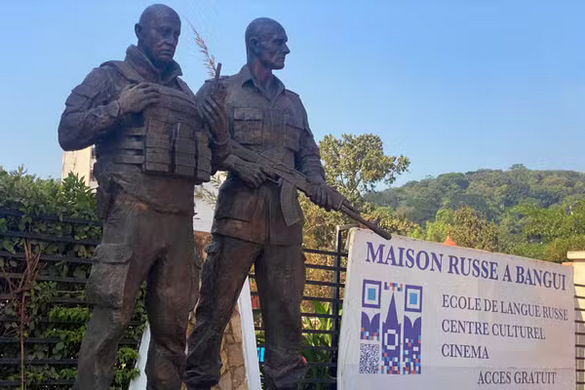
Our Correspondent | Africa Guardian
Despite the death of Yevgeny Prigozhin, the Wagner Group continues to maintain its presence and operations in the Central African Republic (CAR) and Mali, where the mercenaries remain favored by local leaders. In an effort to centralize and reorganize its operations, Moscow has sought to merge Wagner’s African interests into a new entity, the “Africa Corps.” However, the mercenaries’ business and military activities in both countries persist, and their influence endures.
A testament to this is the recent unveiling of a bronze statue of Prigozhin in front of the Russian House in Bangui, the capital of CAR, on December 3. The statue depicts Prigozhin in military fatigues, with a bulletproof vest adorned with magazines, alongside his trusted lieutenant, Dmitri Utkin, the military chief who helped establish the Wagner Group. Utkin is portrayed with a Kalashnikov in hand and a stern expression. Both men continue to be revered in Africa, particularly in CAR and Mali, more than a year after their deaths in a plane crash in August 2023.
Following Prigozhin’s demise, which occurred after his short-lived rebellion against Russian President Vladimir Putin, the Russian government took steps to regain control over its African operations. Moscow’s Ministry of Defense and the GRU (military intelligence) have been tasked with dismantling Wagner’s independent African network and integrating it into the new Africa Corps. As part of this shift, Russian officials, including Yunus-bek Yevkurov, the deputy defense minister, and General Andrei Averyanov, have made numerous visits to African countries to forge stronger, official ties with Moscow. These efforts aim to formalize Russia’s presence in nations like the Central African Republic, Mali, Burkina Faso, and Niger, while solidifying cooperation between the African nations and Russia.
___
